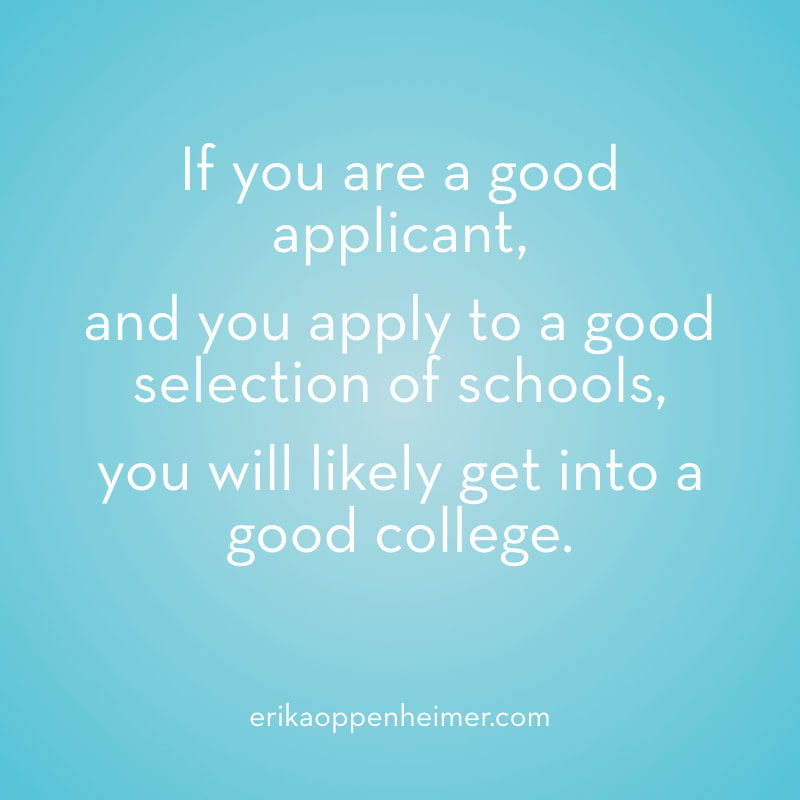In addition to what I tweeted last week, I have a few other thoughts in the wake of the news stories.
While the actions that spurred the news cycle were extreme (and illegal), you’re probably hearing of other, legal ways in which the college admissions process is unfair—or, at least, not entirely merit based.
The truth is, the college admissions system sometimes isn’t merit based. There are many common practices, such as legacy admissions, that work in some applicants’ favor. There are other practices, such as large donations, that work in a few applicants’ favor. That said, most applicants and admitted students are just like you. They are ethical, well-intentioned teens who are doing their best to navigate a challenging process. They are facing the uncertainty of not knowing where they’ll get in. They are putting forth effort with the hope of that effort paying off. Your goal in the college admissions process is to show up as your best self throughout and put forth your best effort. If you are a good applicant, and you apply to a good selection of schools, you will likely get into a good college. Putting forth your best effort involves many factors, including:
I said earlier that the college admissions process isn’t a perfect meritocracy, and it isn’t. But I do believe that in the macro, good students are almost always offered admission to at least one good school that they are excited to attend—particularly when students have done their research and kept an open mind about the many good options available to them at which they have a reasonable chance of admission.
I didn’t have paid guidance when I was going through the college admissions process. I did all of the things I listed above, and I was admitted to some great schools, one of which I attended. But even though I didn't have a consultant or tutor helping me or a parent who attended the schools at which I was offered a place, I still had advantages, starting with the fact that I was raised by parents and supported by teachers who didn’t question my ambition, ability, or work ethic. It is this benefit that I do my best to pay forward to the students with whom I work. I believe in your ability to work hard and make the most of whatever resources and support are available to you. So now that I’ve laid out a framework, I have an assignment for you: Make a list of all the resources that are available to you. These can be external resources, like “time to prep,” “a library card,” and “Khan Academy.” They can also be internal resources like “grit,” “patience,” “creativity,” and “curiosity.” Try coming up with twenty items for your list—I know that might sound like a long list, but I bet you could actually come up with more if you really sat with it. I’ll even give you a head start by reminding you of a few resources that I make available for free or less than $20:
Please feel free to be in touch to schedule a consultation and to refer other teens or parents of teens in your network to me and these offerings. We’re all in this together :)
Other services I offer (these would fall under the "Investment Guidance" category of "Finding and using quality guidance" instruction listed above):
Sign up for email updates, and I'll let you know when I post something new to the blog.
You'll also receive PDFs of my One Month SAT and ACT Prep Plans and the first chapter of my book, Acing It! A Mindful Guide to Maximum Results on Your College Admissions Test.
1 Comment
Tacey E Braithwaite
3/21/2019 07:40:43 pm
I like your approach & valuable insight
Reply
Your comment will be posted after it is approved.
Leave a Reply. |
Receive notifications of new blog posts, and get free access to my "One Month SAT & ACT Prep Plans" PLUS the first chapter of "Acing It!"Work with MePopular Blog Posts |
© 2022 Erika Oppenheimer, LLC. All Rights Reserved - Disclaimer - Terms and Conditions
info@erikaoppenheimer.com
info@erikaoppenheimer.com

